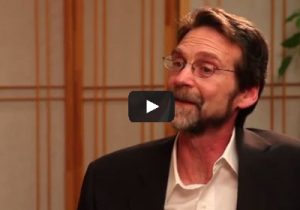VIDEO: Dr. Kirk Schneider – Awe and the Implications for Conducting Therapy
Watch an excerpt from PsychAlive’s exclusive interview with Dr. Kirk Schneider.
Dr. Kirk Schneider talks about the importance of therapy and how it relates to awe.
KS: I wish that every therapist who at least works in a deep way would have some of the therapeutic experiences I had, which, again, I would say, were life saving. The one when I was a kid, and a little later on actually in graduate school, very, very important.
I always like what my mentor Rollo May said about good therapy he said, ”The life is at stake, a person’s life is at stake.” And good therapy brings that realization out. It’s not just rearranging window dressing. You’re not just dealing with symptoms, although those are certainly important. But it’s going to the core of whether this person’s going to be alive in living their life or the walking dead or, sometimes, the actual dead; pretty huge stakes.
How are students being trained to develop that now? If they’re being trained to, you know, perform certain empirically driven approaches or skills rather than having those skills become more a part of their organic way of living. To me, being a good psychotherapist is about being a good live-er. It’s, it’s a life, it’s not just something you do in a cubicle and that’s where its power is mostly.
LF: Yeah. I was thinking about the workshop you did today with that panel about, you know, what – and one of the things that came up is how do we need to be training students who are becoming therapists. And, you know, even maybe selecting differently in terms of graduate students in terms of people who are more inclined to be able to do that as opposed to people for whom that would be more of a struggle.
KS: Yeah, I think this is huge that students are getting exposed less and less to, you know, rich dialogue, philosophical dialogue in mainstream graduate training to really reflect on what it is they are doing and what their vision of helping is really about.
But more important than that is to help people stay present to whatever it is that’s coming up for them, even during the training process, to the degree possible, to make spaces for that. And that’s why we do a lot of small group work with the students and it’s not role-playing. I mean, we really emphasize using live material and helping the “therapist” stay with that and work with what comes up in him or her, as well as the client. I mean, there’s no substitute for actually experiencing the challenge, whatever it is in the moment.
Tags: personal growth, self-awareness, self-esteem, video, videos









Leave a Reply